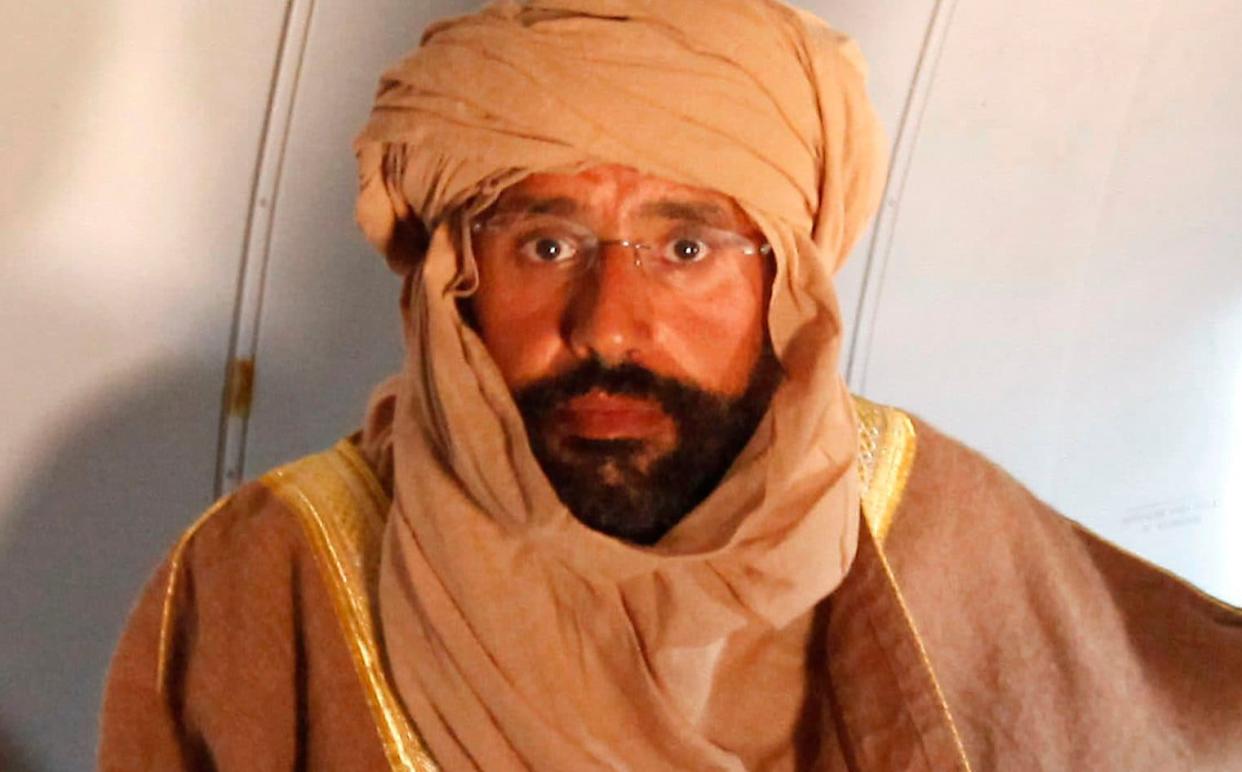Muammar Gaddafi’s son ‘back from the dead’ and planning political comeback

A son of Libyan dictator Muammar Gaddafi who vanished six years ago and was thought to have died has reappeared and announced his intention to re-enter politics.
Saif al-Islam Gaddafi, who is still wanted by the International Criminal Court for crimes against humanity, said he intended to unify Libya at the head of his father's “Green movement”.
In his first public remarks since he was sentenced to death by a Libyan court in 2015, the 49-year-old claimed he would command widespread support from the Libyan public fed up with the factions who have fought for control of the country since his father was overthrown.
“It’s not in their interest to have a strong government,” he told the New York Times. “That’s why they are afraid of the elections.
“They are against the idea of a president. They are against the idea of a state, a government that has legitimacy derived from the people.”
He did not clarify his own political ambitions and avoided the question of whether he planned to run for president in elections scheduled for December.
“I’ve been away from the Libyan people for 10 years,” he said. “You need to come back slowly, slowly. Like a striptease,” he told the paper. “You need to play with their minds a little.”
He also defended his father’s record in power and refused to apologise for atrocities committed by his regime, saying most Libyans now thought the government should have taken an even harder line.

“What happened in Libya was not a revolution,” he said. “You can call it a civil war, or days of evil. It’s not a revolution.”
The second son of long-serving dictator Muammar Gaddafi, Saif al-Islam was educated at Tripoli university and studied for an MBA in Vienna and a PhD at the London School of Economics.
He was seen as a modernising figure under his father’s rule and was credited by some for presiding over a brief period of liberalisation and reform in the last few years of the regime.
That reputation was tarnished when he backed the government crackdown against the anti-government protests in 2011, warning of “rivers of blood” if the revolution was not averted.
He was captured in southern Libya after his father’s regime collapsed later that year, and held prisoner by a militia group in the city of Zintan.
The Zintanis refused to hand him over to the International Criminal Court in the Hague, which had indicted him for war crimes allegedly committed during the war in 2011.
They did allow him to stand trial by video link in front of a court in Tripoli, but refused to hand him over to authorities there when he was found guilty and sentenced to death.
It was later reported that he had been released, but he never appeared in public and rumours have swirled ever since that he was either dead or planning a political comeback.
In 2018, the Libyan Popular Front party claimed that he would be running for president as their candidate in that year’s elections, but promises of a public appearance came to nothing.
In 2020, Bloomberg reported the arrest in Libya of two Russians who were allegedly involved in a plot to install Mr Gaddafi as a pro-Moscow president.
He would have stiff competition if he did seek the presidency. Rivals for national leadership include Khalifa Haftar, the general who controls much of eastern Libya and is backed by Russia and the UAE, and Fathi Bashagha, a former interior minister from the city of Misrata, who is favoured by Turkey and many Western governments.
A ceasefire signed last October has largely frozen Libya’s long-running civil war, but the country remains riven by a bitter east-west divide and is awash with foreign troops and mercenaries from Turkey, Russia, the Middle East and Africa.
Factions have agreed to hold presidential and parliamentary elections in December, but diplomats say privately the chances of those polls going ahead are slim.
Peter Millett, a former British ambassador to Libya, said: “It is interesting to confirm he is actually alive, but I think the analysis that Libyans would welcome the Gaddafis back is exaggerated.”

 Yahoo News
Yahoo News 
